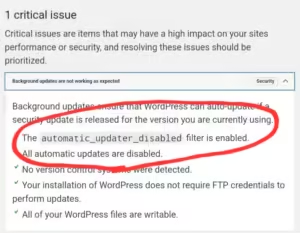
How to Start Cryptocurrency Trading: Crypto Trading for Beginners
Cryptocurrency trading might sound like a foreign language, but once you get the hang of it, it’s like riding a bike. So, what exactly is cryptocurrency trading? In simple terms, it’s the act of buying, selling, and exchanging cryptocurrencies like Bitcoin, Ethereum, and many others. Understanding crypto trading is crucial if you want to dip your toes in this digital goldmine.
What are Cryptocurrencies?
Cryptocurrencies are digital or virtual currencies that use cryptography for security. Unlike traditional currencies, they are decentralized and operate on technology called blockchain.

Popular Cryptocurrencies to Trade
The world of cryptocurrencies is vast, but some of the most popular ones include:
- Bitcoin (BTC)
- Ethereum (ETH)
- Ripple (XRP)
- Litecoin (LTC)
- Bitcoin Cash (BCH)
Setting Up a Cryptocurrency Wallet
Before you start trading, you need a place to store your digital assets. This is where a cryptocurrency wallet comes in. There are several types of wallets, including hardware wallets, software wallets, and paper wallets.
Choosing a Cryptocurrency Exchange
Next, you’ll need to choose a platform to trade on. Some popular exchanges include:
Each exchange has its own features, fees, and supported coins, so pick one that suits your needs.
How to Start Cryptocurrency Trading
Basic Concepts in Crypto Trading
Blockchain Technology –
At the heart of every cryptocurrency is blockchain technology. Think of it as a digital ledger that records all transactions across a network of computers.
Key Trading Terms –
Here are some basic terms you should know:
- Buy/Sell Orders
- Bid/Ask Prices
- Market Order/Limit Order
- Bullish/Bearish
Developing a Trading Strategy
Importance of a Trading Plan –
A solid trading plan is your roadmap to success. It helps you stay focused and disciplined, preventing impulsive decisions.
Types of Trading Strategies –
- Day Trading: Buying and selling within the same day.
- Swing Trading: Holding assets for days or weeks to capitalize on expected price moves.
- HODLing: Long-term holding of assets.
How to Start Cryptocurrency Trading
Technical Analysis for Crypto Trading
What is Technical Analysis?
Technical analysis involves studying past market data to predict future price movements. It’s like weather forecasting but for crypto.
Common Technical Indicators –
- Moving Averages
- Relative Strength Index (RSI)
- MACD (Moving Average Convergence Divergence)
Fundamental Analysis for Crypto Trading
What is Fundamental Analysis?
This method evaluates the intrinsic value of an asset by examining related economic and financial factors.
Evaluating Cryptocurrency Projects –
Look at the team behind the project, the technology, market potential, and community support.
Risk Management in Crypto Trading
Importance of Risk Management –
Crypto markets are highly volatile. Effective risk management can help protect your investments from significant losses.
Tools and Techniques for Managing Risk –
- Stop-Loss Orders
- Diversification
- Position Sizing
How to Start Cryptocurrency Trading
Executing Your First Trade
Step-by-Step Guide to Making a Trade –
- Choose Your Pair: Select the cryptocurrency pair you want to trade.
- Decide on Trade Type: Market or limit order?
- Enter Amount: Specify how much you want to buy or sell.
- Execute Trade: Confirm and execute your trade.
Tips for First-Time Traders
Start small, learn as you go, and don’t invest money you can’t afford to lose.
Staying Informed and Updated
Importance of Market News –
Staying updated with market news can help you make informed trading decisions.
Resources for Staying Updated –
- Crypto News Websites
- Social Media Channels
- Crypto Forums
Common Mistakes to Avoid
Typical Pitfalls for Beginners –
- Emotional Trading
- Overtrading
- Ignoring Research
How to Avoid These Mistakes –
Stick to your trading plan, manage your risks, and continuously educate yourself.
How to Start Cryptocurrency Trading
Security Measures in Crypto Trading
Protecting Your Investments –
Use two-factor authentication (2FA), keep your software updated, and avoid sharing your private keys.
Best Practices for Security –
- Cold Storage: Store your assets offline.
- Regular Backups: Backup your wallet regularly.
Tax Implications of Crypto Trading
Understanding Tax Regulations –
Cryptocurrency trading is subject to taxation. Understand the regulations in your country.
Reporting Your Crypto Earnings –
Keep a detailed record of your trades and consult a tax professional if needed.
The Future of Cryptocurrency Trading
Emerging Trends –
Keep an eye on trends like DeFi (Decentralized Finance) and NFTs (Non-Fungible Tokens).
Long-Term Outlook –
The future of crypto trading looks promising with increasing adoption and technological advancements.
Cryptocurrency trading can be a rewarding venture if approached with the right knowledge and strategies. Remember, the key to success lies in continuous learning, disciplined trading, and effective risk management. Happy trading!
How to Start Cryptocurrency Trading
FAQs
1. What is the Best Cryptocurrency for Beginners?
Bitcoin (BTC) and Ethereum (ETH) are often recommended for beginners due to their popularity
2. How Much Money Do I Need to Start Trading?
You can start with as little as $10, but it’s wise to invest only what you can afford to lose.
3. Is Crypto Trading Legal?
Yes, in most countries, but regulations vary, so check your local laws.
4. Can I Make a Living from Crypto Trading?
It’s possible, but it requires significant knowledge, experience, and risk tolerance.
5. How Do I Keep My Cryptocurrency Safe?
Use secure wallets, enable 2FA, and keep your private keys confidential.





